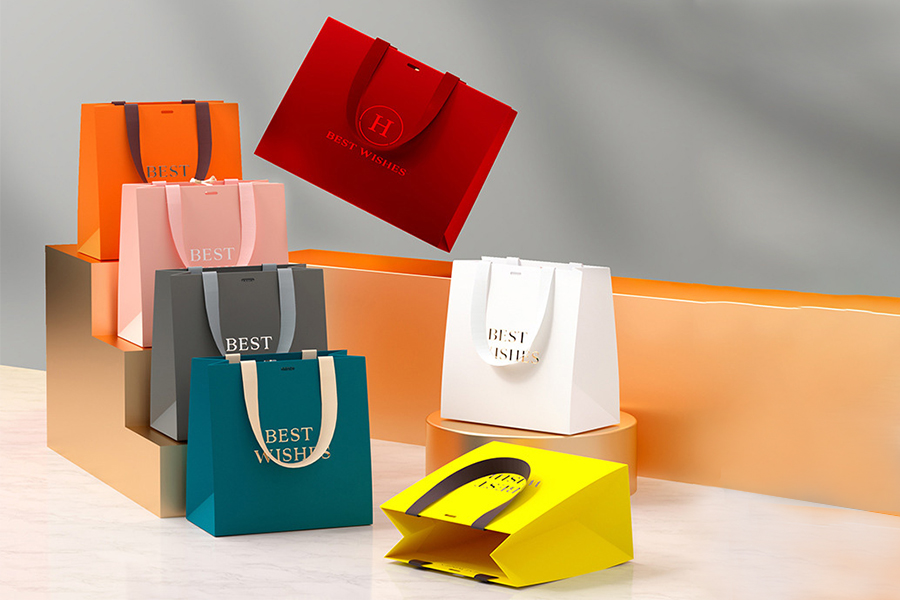The rise of environmentally conscious consumers and tighter regulations on single-use plastics have transformed how businesses approach packaging. Paper bags, once considered a basic necessity, have become a symbol of sustainability and brand identity. Companies across retail, food service, and manufacturing are recognising the importance of sourcing high-quality paper bags that balance durability, design, and eco-friendliness. The move towards paper packaging is not only about compliance but about aligning with customer expectations for greener, more responsible business practices.
Why Businesses Are Switching to Paper Bags
Businesses are increasingly turning to paper bags for several key reasons. First and foremost is sustainability. Paper is biodegradable, recyclable, and renewable, making it a preferred choice for reducing environmental impact. With growing awareness around waste reduction, switching from plastic to paper is an easy and visible step towards eco-responsibility.
Paper bags are also highly versatile and can be customised to suit almost any application. Retailers use them to reflect their brand’s visual identity, while cafés and restaurants rely on them for takeaway packaging. Their ability to be printed with logos, slogans, and artwork transforms them from simple carriers into mobile advertisements, extending brand visibility beyond the point of sale.
Additionally, modern paper bags have evolved significantly in strength and durability. With reinforced handles, multi-layer construction, and advanced folding techniques, today’s paper bags are capable of holding heavy items safely and reliably. They can also be manufactured in various styles, from luxury rope-handled bags for boutiques to grease-resistant paper for food outlets.
The Role of a Reliable Paper Bag Supplier
Choosing the right paperbag supplier is essential for any business seeking quality, consistency, and sustainability in its packaging. A reliable supplier provides more than just bags — they deliver expertise, innovation, and supply chain reliability.
The best suppliers understand that packaging is an extension of a brand. They offer a wide range of materials, including kraft, recycled, and coated papers, and provide options for custom printing and finishes. This allows businesses to create packaging that aligns perfectly with their image, whether that means sleek minimalism or vibrant promotional design.
Working with an experienced supplier also ensures compliance with environmental standards and responsible sourcing. Many leading suppliers use paper from sustainable forests and operate under certifications such as FSC (Forest Stewardship Council). This not only enhances a company’s green credentials but also reassures customers that the packaging they receive is ethically produced.
Sustainability and the Circular Economy
Sustainability is at the heart of the paper bag industry’s growth. Unlike plastic, which can take hundreds of years to decompose, paper breaks down naturally and can be recycled several times before losing its structural integrity. Responsible production practices — including the use of renewable raw materials and water-based inks — further minimise environmental impact.
In the context of the circular economy, paper bags play a vital role by reducing waste and promoting resource efficiency. Recycled paper can be reintroduced into the production cycle, supporting a closed-loop system where materials are reused rather than discarded. For businesses aiming to meet corporate social responsibility targets, paper packaging is one of the most effective ways to demonstrate tangible progress.
The Benefits of Custom Paper Bag Design
Beyond their environmental benefits, paper bags offer valuable marketing opportunities. Custom designs allow businesses to make a lasting impression on their customers. A well-designed bag can convey a brand’s personality, reinforce its values, and enhance the customer experience.
Luxury retailers, for instance, often choose thicker paper stocks, textured finishes, and high-quality handles to evoke sophistication. Meanwhile, sustainable brands may opt for uncoated kraft paper with simple printing to emphasise authenticity and environmental consciousness. The design possibilities are virtually limitless, giving businesses the freedom to create packaging that complements their products and appeals to their target audience.
The Future of Paper Bag Manufacturing
Innovation continues to shape the future of paper bag manufacturing. Automation and precision printing technologies have made production faster and more efficient, while advances in material science are producing stronger and lighter papers. Biodegradable coatings and compostable adhesives are also being developed to further enhance sustainability.
At the same time, digital printing has opened new opportunities for small businesses to access custom packaging at affordable prices. This means even independent retailers and start-ups can create professional, branded paper bags without the need for large bulk orders.
As consumer demand for eco-friendly packaging continues to rise, manufacturers are investing heavily in research and development to improve the performance and environmental footprint of their products. The paper bag industry is evolving rapidly, and businesses that adopt sustainable packaging early will be better positioned to meet future expectations.
Conclusion
Paper bags have evolved from simple carriers to powerful tools for sustainability and brand expression. They meet both environmental and commercial needs, helping businesses reduce waste while strengthening their image in the eyes of consumers.
Partnering with an experienced paperbag supplier ensures access to high-quality, responsibly sourced products that align with modern standards of design and sustainability. As industries continue to embrace greener solutions, paper bags will remain at the forefront of the movement toward a more sustainable and circular economy. For businesses that value quality, environmental responsibility, and brand impact, the paper bag is more than just packaging — it’s a statement of purpose.



